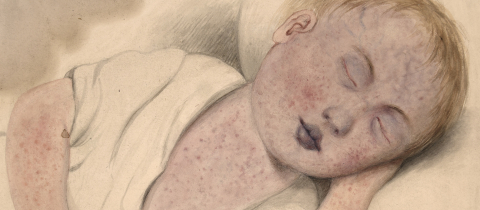Bonus features on a DVD or Blu-ray disc (remember those?) are nice, but we don’t expect them from vaccines. As the novel coronavirus hurtled through communities in 2020 and no specific vaccine was on the immediate horizon, scientists began to wonder if a different jab, already approved and commonly administered, might have a bonus feature of its own: protecting us from COVID and its most severe consequences. The jab in question is the flu vaccine, and with influenza season arriving soon in the Northern Hemisphere, it is worth looking at the scientific evidence behind this idea that the flu vaccine could not only protect from the flu but from COVID as well.
At the beginning of the pandemic, however, some were worried that being vaccinated for the flu might actually have the opposite effect. The foundation for this fear was a scientific paper published just before the start of the pandemic by Greg G. Wolff, an epidemiologist for the Armed Forces Health Surveillance Branch in the United States. He crunched some numbers emerging out of the 2017-2018 flu season and reported, in one calculation, that Department of Defense personnel who had received their flu shot had been more likely to catch a coronavirus. A coronavirus before the emergence of COVID? Well, yes. SARS-CoV-2 is not the only coronavirus in town; coronaviruses have given us SARS and MERS in the past, and a handful of them are responsible for many cases of what we call the common cold. So in this analysis, getting immunized against the flu seemingly put you at an increased risk of getting a mild cold caused by a coronavirus. Some wondered if this meant that being immunized against the flu during the COVID-19 pandemic would be a weakness, not a boon.
There was a big problem with this association, though: it wasn’t real. A Canadian team showed that Wolff had made a mistake. He had dutifully removed people who tested positive for the flu from the control group in one analysis, but in the analysis that led to the alarming result he mistakenly kept these people in. When the Canadian team reanalyzed Wolff’s numbers and when they looked at seven years of Canadian data, the distressing association disappeared. In our era of worldwide misinformation, studies with scary results, even when they are debunked or retracted, get weaponized by activists, and Wolff’s study was no exception. Wolff himself wrote a letter to the editor of the journal that had published his original study to clearly state that his results “DO NOT,” as he wrote in all caps, “support the anti-vaccination viewpoint of avoiding seasonal influenza vaccination.”
But eventually, teams of scientists started to report an unexpected trend: not only was the flu shot not favouring COVID infections, as had been briefly feared, it might actually protect against them.
Marginal benefit or mirage?
The idea is simple enough on its surface: you look through medical databases at two groups of people, those who are recorded as having received their flu shot and those who are not, and you compare the two groups to see how many in each were later diagnosed with COVID, how many were hospitalized because of it, and how many died from it. Another way is to do the reverse, to start with people diagnosed with COVID, see how many had their flu shot and how many had not, and examine how each group fared. These kinds of studies were done and many reported that the flu vaccine seemed to have offered some protection either from getting COVID itself or from severe disease. How much protection? The authors of these papers qualify it as “relatively small” and “marginal.” The word “may” is used a lot.
Other studies—mainly conducted in Italy—find no such link, and here we come face to face with the difficulties in obtaining reliable results from studies like these. Our best chance at clarity would be to do a randomized controlled trial, in which participants are randomly assigned to receive a flu shot or to have the vaccine withheld from them. To be extra-rigorous, we would then purposefully expose all of these people to the coronavirus to document what would happen. Needless to say, there is a good word to describe this experiment: unethical.
Scientists are thus stuck comparing groups of people who chose to receive a flu vaccine or not, but are those people really comparable? Studies that find a protective effect of the vaccine may have arrived at this result because of what is called the healthy user bias. People who seek out the flu vaccine may be more health conscious than those who do not. They may be more likely to follow public health guidance. They may also be better off financially and able to take the time to get vaccinated and pay for the jab.
As such, it is possible what some scientists are really seeing is not a vaccine with a bonus feature but simply individuals who tend to wear their mask, keep their distance from potentially infectious people, and are better able to take care of their health. And researchers are the first to point out this alternative explanation. Studies are never perfect and it always pays to scroll down toward the end of the discussion section of a paper to read about the limitations of the work. A small number of participants. A peculiar population, making the results hard to generalize. The possibility of confounders, meaning a third factor, not investigated by the scientists, that makes it look like A causes B when in fact it does not. Limitations are important to highlight, and the literature on the flu vaccine possibly shielding people from the worst of COVID is no exception. So it is possible the flu vaccine offers no specific protection against COVID-19.
But if the flu shot is eventually shown to have a clear protective halo that encompasses COVID (and perhaps other infections as well), it may be through a process known as trained immunity, an idea that has changed how we think about what the immune system is capable of.
In living memory of the innate immune system
Our immune system can broadly be divided into two branches. Our adaptive immunity can use antibodies to tailor its defence against a specific invader and it forms a memory of this invasion. Our innate immunity, by contrast, is more primitive and non-specific. It uses barriers, molecular bombs, and hungry cells that eat up microbes. We used to think this innate immunity had no memory of these attacks and thus could not learn, but an emerging body of work is saying, “not so fast.”
It started with the tuberculosis vaccine. Scientists saw that receiving this vaccine was associated with a decrease in deaths that could not be fully explained by protection against tuberculosis. The vaccine seemed to also, strangely enough, protect against unrelated respiratory infections and sepsis. A parallel finding was reported in mice, which showed that this bonus feature was not channelled through the adaptive immune system, but rather through the innate response. This phenomenon was named trained immunity.
Basically, a challenge is presented to our immune system. This challenge is a microbe or a part of one, like the attenuated tuberculosis vaccine or a sugar like beta-glucan present in the cell wall of a fungus. When these microbial elements come into contact with our immune system, it sends ripples throughout the system, a reprogramming that makes our innate immunity better able to respond to a future attack. A parallel training mechanism was well established for our adaptive immunity, with its antibodies and memory cells, but the fact that our crude innate immune response is also capable of this is unexpected.
The reprogramming itself is epigenetic in nature. Our genes make proteins, but they are not always making proteins. Like bakers, they have schedules and they respond to dips and hikes in demand. This regulation is under the control of epigenetic factors: marks that land on top of genes to silence them and large molecules that can relax or scrunch up the DNA molecule to make it more or less accessible. Scientists are only now beginning to understand how epigenetic reprogramming by infectious agents can train our innate immunity to better protect us from unrelated contagions. Some live attenuated vaccines, like those against smallpox, measles, yellow fever and polio (the oral live version but not the inactivated vaccine), have been shown to trigger this trained immunity, and future research should reveal which other vaccines may have provided us with this bonus feature all along.
We still do not know for sure if the flu vaccine really does offer some protection against COVID-19 and its complications. It may be that the benefit is real though marginal or it may just be an illusion created by the imperfect studies done to investigate this effect. Regardless, the flu vaccine has real benefits. It protects against influenza, a disease which some predict will be severe this coming winter season due to our dwindling immunity from not encountering the virus much last year. And the flu shot helps reduce hospitalizations due to influenza. Given the number of times our healthcare system, made up of bone-tired people, has groaned and buckled under the stress of the pandemic, every little bit of prevention helps.
Take-home message:
-The claim that getting the flu shot puts you at risk for COVID-19 is not true and was based on a paper published before the pandemic that made a mistake when calculating the risk of a coronavirus infection in people who had been immunized against the flu
-There is contradictory evidence on whether or not the flu vaccine offers a small protection against COVID-19, as this effect may simply be due to the people seeking out the flu shot being more health conscious, better off financially, and more willing to adopt public health measures during the pandemic
-Some infections and vaccines seem to be able to improve our defences against other infections by training a part of our immune system we used to think was incapable of this kind of training







